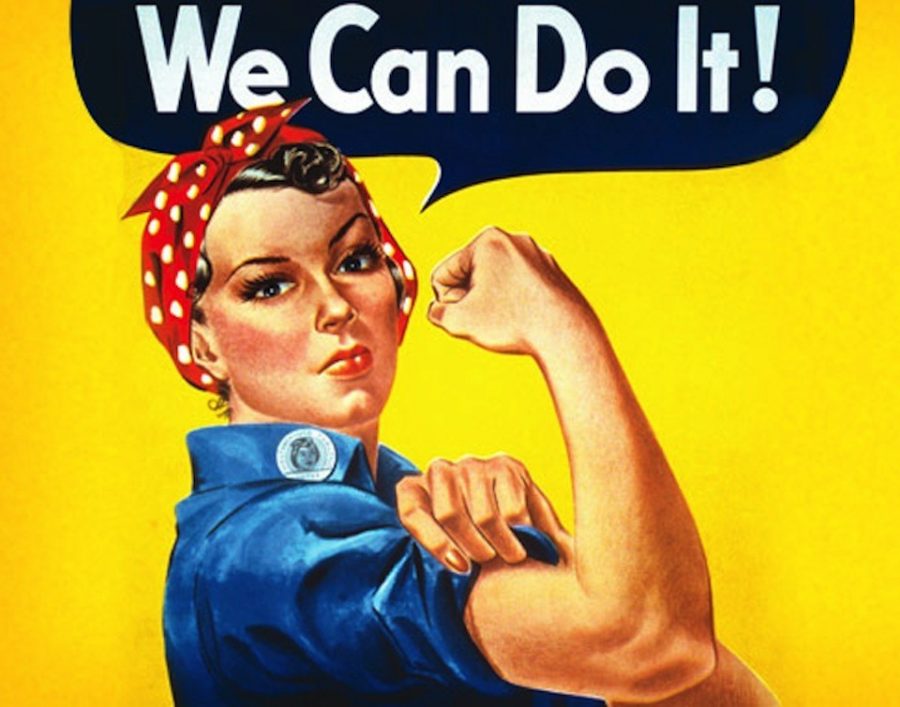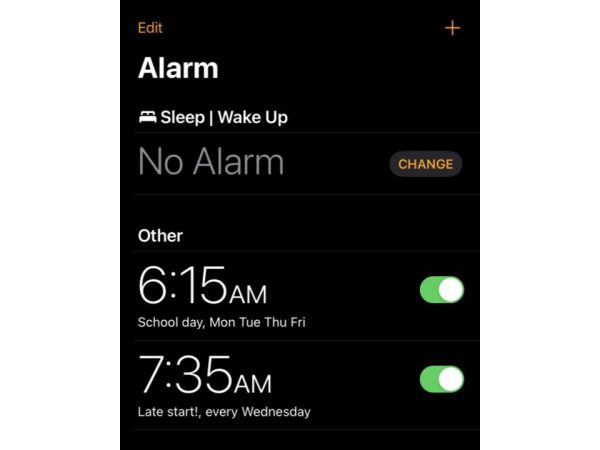Women in the workplace
Societal pressures have been put on women since the beginning of time to act a certain way and participate in only certain activities. Women have evolved from the typical housewife into powerful CEO’s, but despite the workforce evolving into an equal space, women still face much discrimination at the office.
A familiar form of discrimination often seen at a woman’s job is not being taken seriously as a professional employee.
“I don’t feel that the men in my line of work establish as high of a standard that weighs down on me, and therefore, I feel as if I carry more of the burden,” Lisa Ciarrachi, Official Court Reporter for The State of Illinois.
Heidy Rehman, a well-known financial stock analyst, gets frustrated when she is not treated the same as men at her workplace just because of her gender: “If I answered a colleague’s phone – which we all did, regardless of gender; you don’t want to lose a client – I could expect to be treated as a secretary because I was a woman. That drove me up the wall, and I often called men out on it.”
Additionally, pay discrimination is seen amongst genders. For every dollar that a man makes, a woman makes 79 cents. Despite the Equal Pay Act making it illegal to pay women less on the basis of their sex, pay inequity still occurs and women are still fighting to close the pay gap.
Carli Lloyd, co-captain and a player on the U.S. Women’s Soccer Team, wrote an essay to the New York Times on her experiences in pay inequity at her job.
“If I’ve learned anything in my career, it’s that nothing worthwhile in life comes easy. That’s just the way it is. This isn’t about a money grab. It’s about doing the right thing, the fair thing. It’s about treating people the way they deserve to be treated, no matter their gender.”
Changes are essential in order for equality to finally be met.
“The most challenging thing about being a woman in business is maintaining the energy to push for change even while the pace of change is slow,” said Amy Manning, Global Chair of Antitrust, Trade and Commercial Litigation Department of Mcguirewoods LLP. “Part of the difference in my experience has to do with the low numbers of women that make it to partnership in law firms. Thus, there have been fewer female role models for me. Luckily, that is changing! However, I still am often the only woman in the room. And sometimes, that means I have to factor that reality into how and when I communicate things.”
In addition to women facing unfair treatment in the workplace, many women face sexual assault while they are working. The United States Department of Justice estimates that around eight percent of all rape and sexual assault cases come from women being harmed during their work hours. One in three women are sexually assaulted at work, and 62 percent of women do not report the assault.
“It’s worrying to see how awful some women have it at work,” said freshman Lexi Lukose. “When I go into the workforce, I deserve to be safe and I deserve to be respected.”
Ms. Samp, Physical Education and Health teacher, coaches soccer teams at York. When she is coaching soccer, she is often the only female coach.
“The biggest thing was proving to myself that I could do this because there are not many women coaches that coach boy’s soccer. I also had to prove myself to the other coaches and other teams because it’s kind of rare to see a woman coach,” Ms. Samp said.
Even as an athlete, Ms. Samp still feels struggles because of her gender.
“I think male athletes tend to have more privileges and opportunities because people believe that some sports are dominant; they never really thought about women’s sports. It was always about looking at the main sports like baseball and football. However, we have come a long way and now women’s sports are looked at in a new light.”
While there are struggles, there has been much improvement.
“I want to continue to see progress,” said Lukose. “I hope that when I go into the workforce, I will only be judged for my hard work and responsibility, not because of my gender.”
















